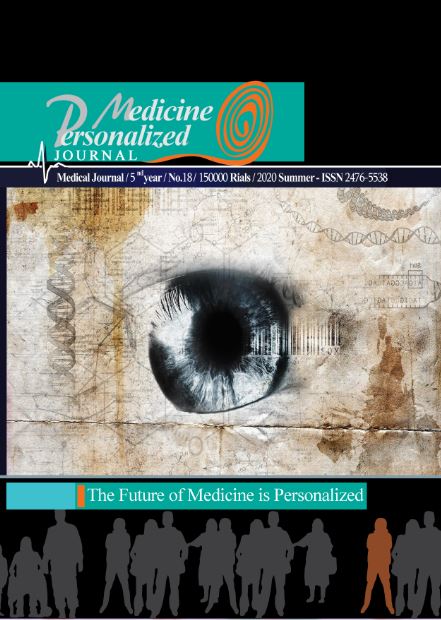Document Type : Original Article
Authors
1 Department of public management, Faculty of management, University of Shahrekord, Iran
2 Department of Immunology, Asthma and Allergy Research Institute, Children's Medical Center, Tehran University of Medical Sciences, Tehran, Iran
3 Personalized Medicine Research Center of AmitisGen, Tehran, Iran
Abstract
Vitamin C plays is a cofactor for enzymes involved in many processes and has effects that are important for cancer transformation, such as antioxidant defense, transcription, and epigenetic regulation of gene expression.Angiogenesis is a normal process required for normal tissue repair and growth. Pathological angiogenesis is characterized by the persistent proliferation of endothelial cells and formation of blood vessels.The current study evaluated the effect of ascorbic acid on angiogenesis by investigating the expression of genes related to angiogenesis after treatment with different doses of ascorbic acid. By changing the concentration and administration time of ascorbic acid, a positive effect on the growth and metastasis of cancer cells in the group injected with ascorbic acid prior to having cancer cells injected into the abdominal cavity .
Keywords
- Gonzalez MJ, Miranda-Massari JR, Mora EM, Guzman A, Riordan NH, Riordan HD, Casciari JJ, Jackson JA, Roman-Franco A: Orthomolecular oncology review:ascorbic acid and cancer 25 years later. Integr Cancer Ther 2005, 4:32-44.
- Klenner FR: The treatment of poliomyelitis and other virus diseases with vitamin C. South Med Surg 1949, 111:209-214.
- Cameron E, Pauling L, Leibovitz B: Ascorbic acid and cancer: areview. Cancer Res 1979, 39:663-681.
- Chen Q, Espey MG, Krishna MC, Mitchell JB, Corpe CP, Buettner GR, Shacter E, Levine M: Pharmacologic ascorbic acid concentrations selectively kill cancer cells: action as a pro-drug to deliver hydrogen peroxide to tissues. Proc Natl Acad Sci USA2005,102:13604-13609.6.
- Chen Q, Espey MG, Sun AY, Lee JH, Krishna MC, Shacter E, Choyke PL, Pooput C, Kirk KL, Buettner GR, Levine M: Ascorbate in pharmacologic concentrations Selectively generates ascorbate radical and hydrogen peroxide in extracellular fluid in vivo. Proc Natl Acad Sci USA 2007, 104:8749-8754.
- Padayatty SJ, Riordan HD, Hewitt SM, Katz A, Hoffer LJ, Levine M: Intravenously administered vitamin C as cancer therapy: three cases. CMAJ 2006, 174:937-942.
- Frei B, Lawson S: Vitamin C and cancer revisited. Proc Natl Acad Sci USA 2008, 105:11037-11038.
- de la Lastra CA, Villegas I: Resveratrol as an antioxidant and prooxidant agent: mechanisms and clinical implications. Biochem Soc Trans 2007, 35:1156-1160. 10
- Mikirova NA, Ichim TE, Riordan NH: Anti-angiogenic effect of high doses of ascorbic acid. J Transl Med 2008, 6:50.
- . Peyman GA, Kivilcim M, Morales AM, DellaCroce JT, Conway MD: Inhibition of corneal angiogenesis by ascorbic acid in the rat model. Graefes Arch Clin Exp Ophthalmol 2007, 245:1461-1467.
- Park S, Ahn ES, Lee S, Jung M, Park JH, Yi SY, Yeom CH: Proteomic analysis reveals upregulation of RKIP in S-180 implanted BALB/C mouse after treatment with ascorbic acid. J Cell Biochem 2009, 106:1136-1145. 13.
- Chomczynski P: aMK Short technical report. Modification of the TRIZOL reagent procedure for isolation of RNA from Polysaccharide-and proteoglycan-rich sources. Biotechniques1995, 19:942-945.
- Lynch MJRS, Mellor LD, Spare PD, Inwood JH: Medical Laboratory Technology and Clinical Pathology 2nd edition. Philadelphia: W. B. Saunders Co; 1969.
- McLane MA, Zhang X, Tian J, Zelinskas C, Srivastava A, Hensley B, Paquette-Straub C: Scratching below the surface: wound healing and alanine mutagenesis provide unique insights into interactions between eristostatin, platelets and melanoma cells. Pathophysiol Haemost Thromb 2005, 34:164-168.
- Barness LA: Safety considerations with high ascorbic acid dosage. AnnNY AcadSci1975,258:523-528.
- Folkman J: Tumor angiogenesis: therapeutic implications. NEngl J Med 1971, 285:1182-1186.
- Roomi MW, Ivanov V, Kalinovsky T, Niedzwiecki A, Rath M: In vivo and in vitro antitumor effect of ascorbic acid, lysine, proline, arginine, and green tea extract on human fibrosarcoma cells HT-1080. Med Oncol 2006, 23:105-111.
- Montesano R, Vassalli JD, Baird A, Guillemin R, Orci L: Basic fibroblast growth factor induces angiogenesis in vitro.Proc Natl Acad Sci USA 1986, 83:7297-7301.

